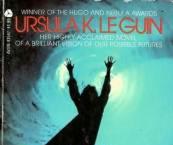 The word utopia literally means “no place” in the original Greek. Thomas More named his fictional island nation Utopia in his 1516 book of that same name. There is some debate about More’s motivation for writing the book, and whether he actually believed such a place of perfect harmony was possible, or if he was mocking certain European notions of the day.
The word utopia literally means “no place” in the original Greek. Thomas More named his fictional island nation Utopia in his 1516 book of that same name. There is some debate about More’s motivation for writing the book, and whether he actually believed such a place of perfect harmony was possible, or if he was mocking certain European notions of the day.
With the hindsight of 500 years, and especially the horrors of the twentieth century, we can be fairly confident that More got the name right, that there is “no place” where human beings can create some idealized version of reality in which all the ills of society are simply erased and human happiness is universalized.
Of course, that doesn’t keep some people, and some governments, from continuing to try. I’m drawn to stories of utopias gone wrong because I appreciate, as America’s founders did, that reality and human nature are very stubborn things. Reality is not infinitely malleable. One such story is the acclaimed science-fiction novel The Lathe of Heaven, written in 1971 by Ursula K. Le Guin.
The story is set in a dystopian society in the year 2002, in which all the worst predictions of Malthusian environmentalist doomsayers have come true. The context is important: beginning in the early 1960s, a wide variety of writers and thinkers in the United States began to predict that the natural resources on which human civilization depends would begin to run out in a matter of a few short years, even less than a decade, and that mass starvation and environmental destruction were imminent.
If you lived through the late 1960s or the ’70s, the remembrance of those panics may amuse you. Here we are a dozen years past the date in which Le Guin’s novel is set, and not only haven’t any of the predictions of disaster of that era come true, but in fact the exact opposite has occurred: humans are producing more food than ever on less land than was used before, the environment is getting cleaner every day, and the prosperity of modern societies is reaching the world’s poorer nations. Of course, such concerns make up a good background for an exciting story, even though they make for awful real-life forecasting.
The premise of The Lathe of Heaven is fascinating in this context. The protagonist, a middle-aged man, has a little problem: his dreams literally come true; they completely change reality, as if any previous reality before his dreams never existed. Understandably, this scares him, so he starts taking prescription drugs to try keep himself from dreaming. He gets busted by the police and is assigned a psychiatrist to determine whether he’s crazy or just addicted.
It so happens that the doctor is a utopian, through and through, and he decides that he can make a better world by manipulating his patient’s dreams. Naturally, it doesn’t work out as he hoped, unintended consequences being an unavoidable truth. Le Guin does a fine job of exploring the disasters that powerful people with good intentions can cause. The Lathe of Heaven is a short book with a timeless lesson well told, and one that the world needs to hear time and time again.
Recommended: The Lathe of Heaven, by Ursula Le Guin

